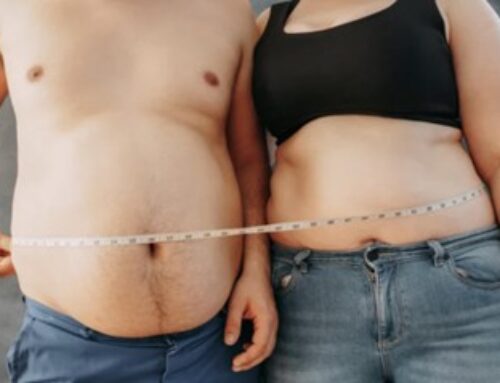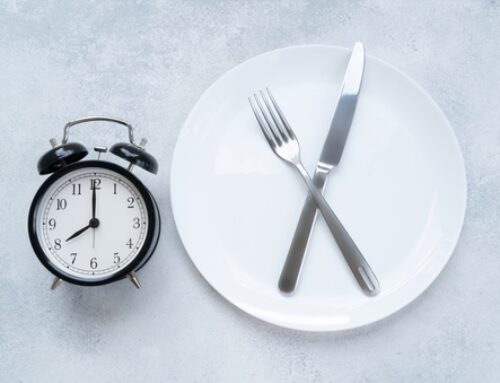“I Do Not Care About My Weight!”
This statement was emphatically spoken at one of my recent
If you identify with these sentiments, you might wonder if it is even worth having a scale in your home. Do the scales serve any purpose in helping you live a quality life? It really depends on what type of “scale-user” you are. Do you weigh every morning at 7am sharp and keep a journal of the numbers? Or, do you often dismiss the dust-covered object on your bathroom floor? We all have a different relationship with the scale. How useful or harmful is the bathroom scale for you?
In this current age of focusing on health rather than size, a scale might be a hindrance. For some, weighing frequently can cause anxiety, low self-confidence, and destructive diet and lifestyle behaviors. Throwing away the scale might be the best thing for you. Forgetting the numbers and focusing on other factors of health may be necessary to lead a much happier life.
For some, using the scale as part of your overall healthy lifestyle will help you achieve a healthy, manageable weight. When used appropriately, the scale can tell you that your weight is steadily increasing or decreasing earlier than you might be able to tell by the fit of your clothes. Because of this, you can correct the problem before it becomes more difficult to deal with. Research shows us that those who monitor their weight are likely to lose weight as well as keep the weight off longer than their non-weighing counterparts.
Should you toss the scale or keep it? If you identify with two or more of the following statements, you’ll likely be better off without it:
- I avoid weighing myself or become very anxious at the idea of stepping on the scale.
- I place a lot of pressure on myself to be a certain weight.
- I am very disappointed in myself if I am not at my target weight.
- If a number is higher or lower than I wanted, I will make extreme changes to my diet.
- I have a history of disordered eating.
- I feel better when I don’t weigh myself.
If these statements sound like you, get rid of the scale! It is causing more problems than it would solve. However, if you don’t identify with these statements, please continue reading:
Weigh Frequently, But Not Too Frequently
For those who can handle the scale, I usually suggest weighing yourself once a week, in the morning, before consuming anything. This will show you your weight trend over time and you can monitor the general increase or decrease as you go along.
Women may want to weigh themselves less as their weight fluctuates more depending on where they are in their cycle. Some may get discouraged if they weigh themselves on a weekly basis and note large fluctuations. If you tend to get discouraged when your weight fluctuates, monthly weighing (at the same point in your cycle each month) might be best.
While I do think that daily weighing can work for some, I generally discourage it for most people. I don’t think it provides enough extra information to be worthwhile. If you feel compelled to weigh on a daily basis, it is worth exploring why you want to do this. More often than not, those who want to weigh daily are participating in unhealthy behaviors.
Understand What the Scale Can Tell You
The number on the scale does not tell how much muscle or how much fat you have. If you’ve started weight training recently, the number on the scale can sometimes go up as you start working out and increase your muscle mass. This is not a bad thing. Since muscle is denser than fat, you may see the number creep up or stagnate when you’re trying to lose weight. This is simply an increase in muscle mass and (usually) a decrease in body fat. I encourage you to keep track of your body measurements (hips, thighs, waist, chest, etc…) as well; while the number on the scale might go up, you’ll notice you are also losing inches off your body. You’ll be stronger and fitter, but your weight will be higher or the same. This is actually a fair trade-off for your health.
Also realize that a scale shows even small fluctuations in your weight that have nothing to do with the amount of fat you have. Water has weight also. You’ll notice that your weight might be higher today because of extra water you are holding onto; a totally normal fluctuation and nothing to worry about. It does not mean that you need to cut your calories, carbs, fat, etc. to burn off the extra two pounds of fat you suddenly sprouted overnight.
Because it is normal to see these fluctuations in weight, it is important not to base your dietary and lifestyle habits on that sudden two-pound increase. What you must take note of is a steady increase or decrease over time. The scale isn’t perfect and the numbers need to be taken in context with everything else going on. As long as you can accept what the scale can communicate and what it can’t, it can be a useful tool for weight management.
Realize There Is More to Health Than the Number on the Scale
The scale does not measure your happiness, your stress level, your fitness, or any other measure of your health. It is simply one number in the midst of many measureable (and un-measureable) things in your life. Do not let it dictate how you feel about yourself.
I think it is great that individuals are embracing a life without numbers. Counting calories, grams, and pounds should end if it is a healthy choice for that person. But I also think it is important to remember that the scale can be useful if implemented correctly and that it is possible to use it in a way that helps reach a healthy goal.
The phrase: “I do not care about my weight” can be an acceptable mantra. Weighing occasionally is fine, but also consider using other measuring sticks along the way.
[LivFit] Testing
At our [LivFit] seminars we go further than simply measuring your weight. We weekly test your body fat percentage, skeletal muscle mass, basal metabolic rate, visceral body fat, and your virtual age. These important numbers help us gain a better understanding about your health and what goals need to be set.
Join us for our 3-week [LivFit] seminar on Thursday evenings in the Roanoke, Virginia chiropractic office.
February 12, 19, and 26 at 6pm.
We offer this nutrition and wellness seminar to provide you with the information and plan required to achieve a healthy lifestyle. Consider bringing someone with you. You’ll love the results and the accountability that comes with bringing a friend.
See the front desk or call:1-540-344-1055 to register today!
Space is limited
Dr. Daryl Rich, DC, CSCS






